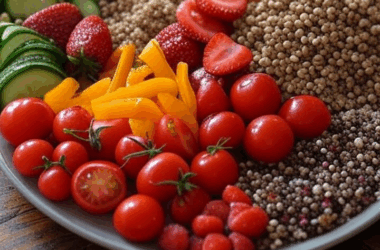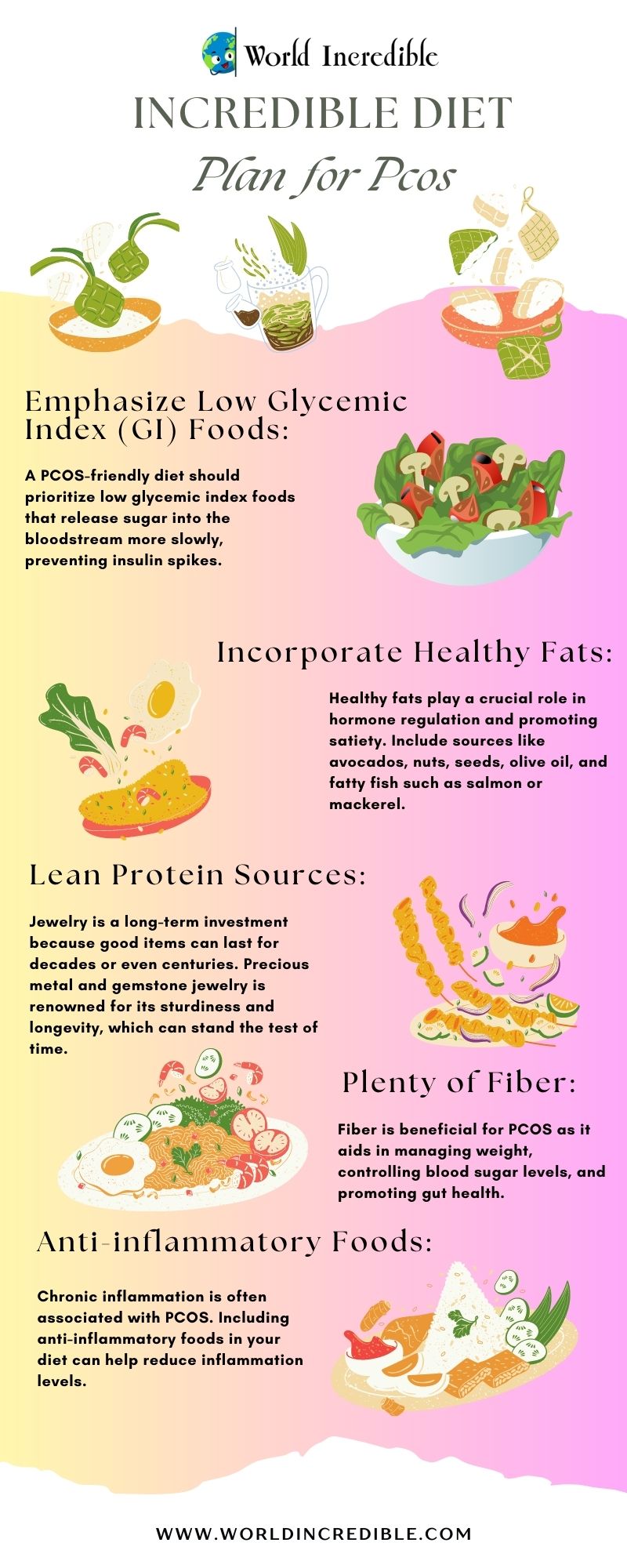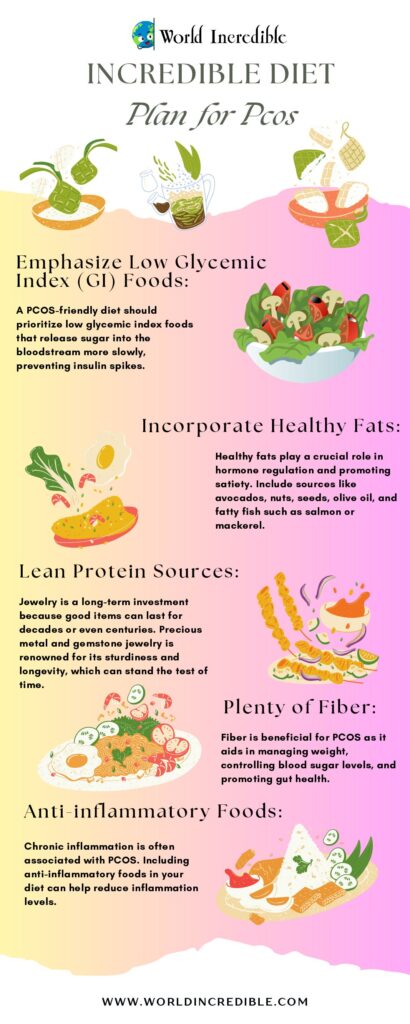Pcos full form is Polycystic Ovary Syndrome and is a hormonal disorder that affects many women worldwide. One of the most effective ways to manage PCOS symptoms and promote overall well-being is through a carefully designed diet plan. By incorporating specific foods and making mindful dietary choices, women with PCOS can rebalance their hormones, improve insulin sensitivity, manage weight, and enhance fertility. In this blog post, we will explore an incredible diet plan for PCOS that focuses on nourishing the body and supporting optimal health.
Emphasize Low Glycemic Index (GI) Foods:
A PCOS-friendly diet should prioritize low glycemic index foods that release sugar into the bloodstream more slowly, preventing insulin spikes. Include whole grains, legumes, fruits, and vegetables such as quinoa, brown rice, lentils, berries, leafy greens, and broccoli.
Incorporate Healthy Fats:
Healthy fats play a crucial role in hormone regulation and promoting satiety. Include sources like avocados, nuts, seeds, olive oil, and fatty fish such as salmon or mackerel. These fats aid in reducing inflammation, improving insulin sensitivity, and supporting hormone production.
Lean Protein Sources:
Protein is essential for repairing tissues and maintaining a healthy metabolism. Opt for lean protein sources like chicken breast, turkey, fish, tofu, and legumes. Protein-rich foods help stabilize blood sugar levels, enhance satiety, and support healthy weight management.
Plenty of Fiber:
Fiber is beneficial for PCOS as it aids in managing weight, controlling blood sugar levels, and promoting gut health. Include fiber-rich foods like whole grains, fruits, vegetables, and legumes in your diet. Aim for a balanced mix of soluble and insoluble fiber to reap maximum benefits.
Anti-inflammatory Foods:
Chronic inflammation is often associated with PCOS. Including anti-inflammatory foods in your diet can help reduce inflammation levels. Include turmeric, ginger, green leafy vegetables, berries, fatty fish, and nuts. These foods possess antioxidants and phytochemicals that combat inflammation and promote overall well-being.
Dairy Alternatives:
Dairy products can sometimes worsen PCOS symptoms due to their potential hormonal effects. Consider opting for dairy alternatives like almond milk, coconut milk, or soy milk. These provide essential nutrients without the potential negative impact on hormone balance.
Mindful Carbohydrate Consumption:
While carbohydrates are an important energy source, it’s crucial to be mindful of the type and quantity consumed. Choose complex carbohydrates like whole grains, beans, and vegetables over refined and processed carbohydrates. Practice portion control and balance carbohydrate intake with protein and healthy fats to manage blood sugar levels effectively.
Conclusion:
A well-planned diet can have a significant impact on managing PCOS symptoms, regulating hormones, and improving overall health. By incorporating the aforementioned guidelines into your daily eating habits, you can take a proactive approach towards PCOS management. However, it’s essential to consult with a healthcare professional or a registered dietitian before making any major dietary changes. Remember, everyone’s nutritional needs are unique, and an individualized approach will ensure the best results. Embrace this incredible diet plan for PCOS, and embark on a journey towards a healthier and happier life.













